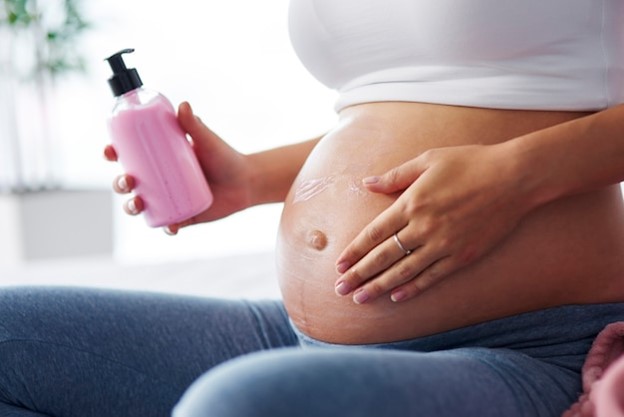Pregnancy brings about a multitude of changes in a woman’s body, and the skin is no exception. Hormonal shifts, increased blood circulation, and stretching of the skin can lead to various skin changes during pregnancy. While some of these changes are temporary and harmless, others may require extra care and attention. In this article, we will discuss common skin changes during pregnancy and provide helpful tips for caring for your skin to maintain its health and vitality throughout your pregnancy journey in South Africa.
- Stretch marks:
Stretch marks, or striae gravidarum, are one of the most common skin changes during pregnancy. They occur as the skin stretches to accommodate the growing baby. While they cannot be completely prevented, you can minimize their appearance and promote skin elasticity by:
- Applying moisturizers and oils rich in vitamin E and cocoa butter to keep the skin hydrated and supple.
- Avoiding rapid weight gain and maintaining a healthy weight throughout pregnancy.
- Drinking plenty of water to maintain skin hydration.
- Hyperpigmentation:
Hyperpigmentation, often referred to as the “mask of pregnancy” or melasma, is characterized by dark patches that typically appear on the face, abdomen, and other areas of the body exposed to the sun. Protect and care for your skin by:
- Applying sunscreen with a high SPF (sun protection factor) of at least 30 and broad-spectrum protection. Look for pregnancy-safe sunscreens that contain physical blockers like zinc oxide or titanium dioxide.
- Wearing a wide-brimmed hat, protective clothing, and seeking shade to minimize sun exposure.
- Using gentle, pregnancy-safe skin care products and avoiding harsh chemicals that may exacerbate pigmentation.
- Acne:
Pregnancy hormones can trigger changes in sebum production, leading to acne breakouts. To manage pregnancy-related acne:
- Cleanse your face twice daily with a gentle cleanser suitable for pregnancy.
- Avoid harsh scrubs or products containing salicylic acid or retinoids.
- Moisturize with non-comedogenic (non-pore-clogging) products to maintain skin hydration without exacerbating acne.
- Consult with a dermatologist for safe topical treatments or alternative options if acne persists.
- Dryness and itching:
Pregnancy hormones and stretching of the skin can cause dryness and itching. To alleviate these symptoms:
- Take lukewarm showers or baths instead of hot ones, as hot water can further dry out the skin.
- Use mild, fragrance-free moisturizers to lock in moisture after bathing.
- Wear loose-fitting, breathable clothing made of natural fibers to prevent irritation.
- Avoid scratching to prevent skin damage and potential infections. Instead, apply a soothing, pregnancy-safe moisturizer or consult your healthcare provider for recommended topical treatments.
- Varicose veins:
Increased blood circulation and pressure on the veins during pregnancy can lead to the development of varicose veins, which are swollen, bulging veins. To manage varicose veins:
- Avoid prolonged periods of standing or sitting. Take breaks to elevate your legs and improve blood circulation.
- Wear compression stockings or maternity support hose to help alleviate discomfort and promote better blood flow.
- Engage in regular exercise, such as walking or swimming, to improve circulation.
- Consult with your healthcare provider for additional treatment options if varicose veins cause significant discomfort or complications.
- Sensitivity and sun sensitivity:
During pregnancy, the skin may become more sensitive, and sun exposure can intensify this sensitivity. To care for your skin:
- Opt for gentle, fragrance-free skin care products to minimize irritation.
- Wear protective clothing, including a wide-brimmed hat and sunglasses, when outdoors.
- Apply a broad-spectrum, pregnancy-safe sunscreen with a high SPF before going outside.
- Seek shade during peak sun hours to reduce sun exposure.
Understanding and caring for common skin changes during pregnancy can help you maintain healthy and radiant skin throughout this special journey. Remember to prioritize gentle and pregnancy-safe skin care products, maintain proper hydration, protect yourself from the sun, and consult with your healthcare provider if you have any concerns or persistent skin issues. With proper care, you can embrace your pregnancy glow and nurture your skin’s well-being in South Africa.










